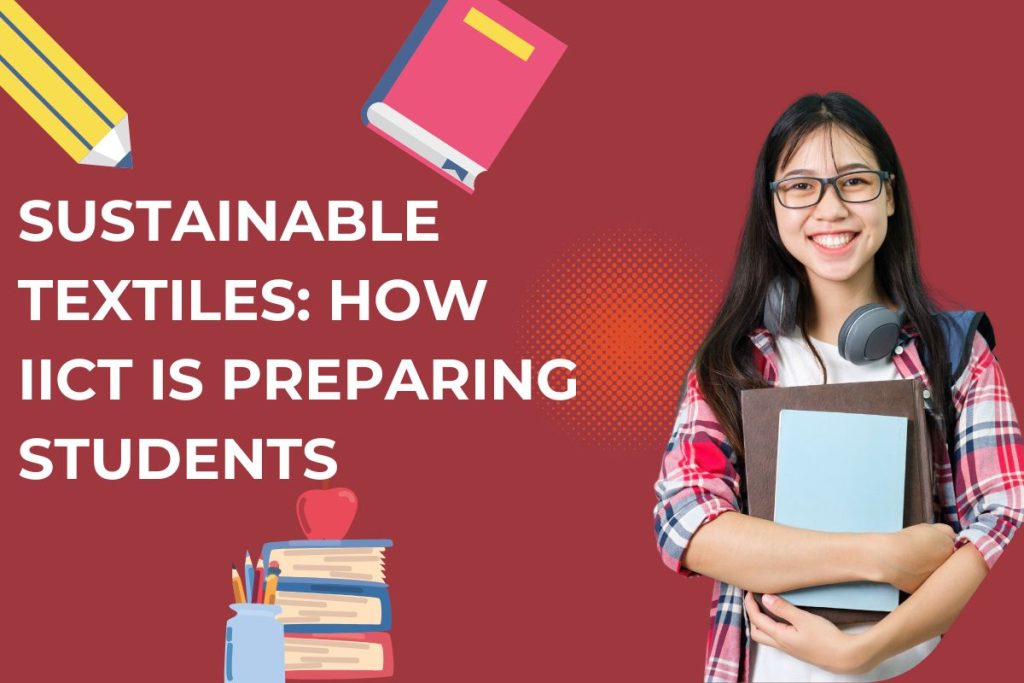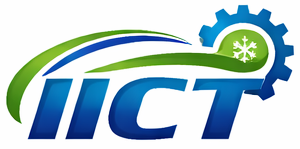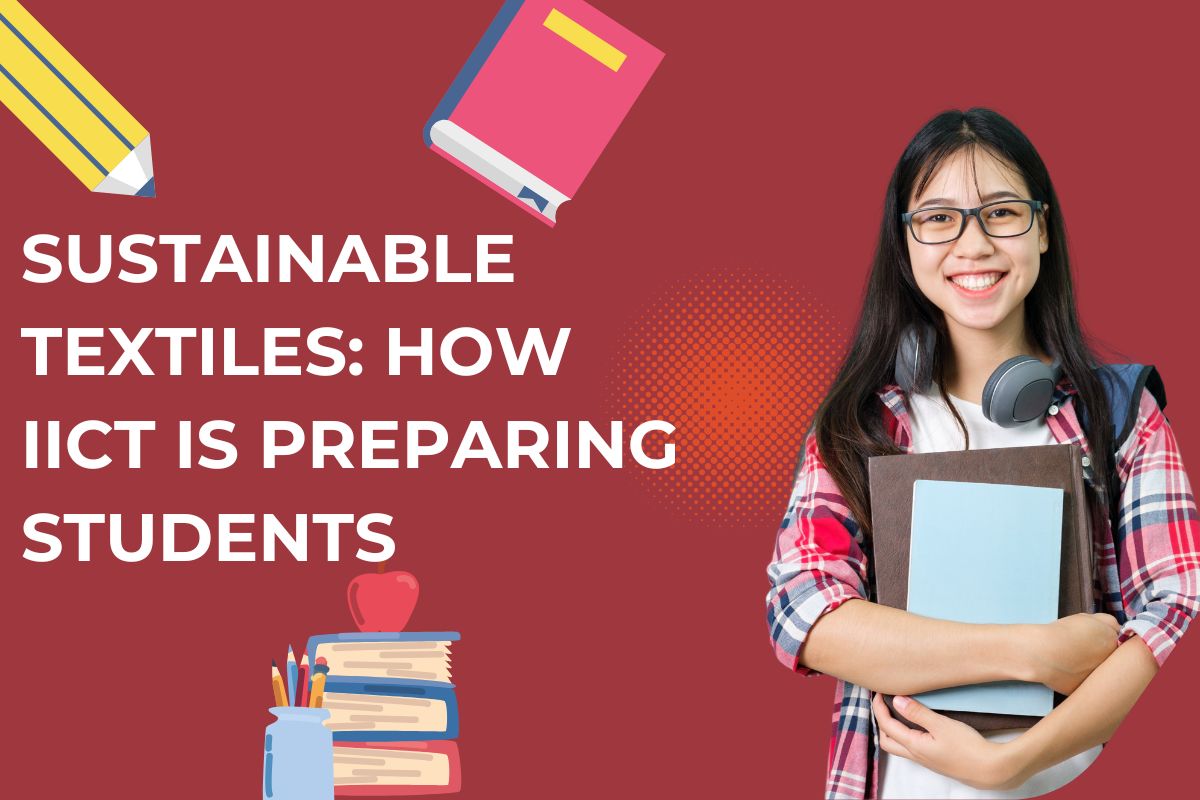The modern textile industry faces a growing pressure in relation to their impact on the environment, resources consumption and wastes. With the current global demand on green fashion and ethically responsible fashion production, colleges such as the Indian Institute of Chemical Technology (IICT) are rising to the occasion to equip learners with these new prospects.
The programs offered by ICT are well-planned to enable learners understand the principles of using eco-friendly raw materials, manufacturing methods that use less energy, recycling methods, and the concept of the circular economy. ICT exposes the student to the real-world, links them to workshops, digital labs and industry projects, which is then translated into creativity and solution-thinking. IICT also prepares its students by teaching them emerging trends in technical textiles, digital manufacturing, smart fabrics, and intelligent supply chains.
The institute graduate profile is associated with future requirements of the textile industry that attaches great importance to the role of an environmental supporter, being more technical and a team player. They are also oriented towards not only generating assured and confident graduates in sustainable practices but also graduates competent enough not only to be successful in the local and global textile industries but in the international market too.
Sustainable Textiles Curriculum of ICT
IICT has repackaged its textile programs with the focus on sustainability. Some courses include:
- Textile processing by green chemistry.
- Recycled, biodegradable fiber technology.
- Water and energy saving in production.
- The models of circular economy and recycling of textile.
- Eco-friendly production based on the Industry 4.0 solutions.
They have provided students with lectures, laboratory training and internship in modern textile plants, where they learn to work with environmentally friendly dyes, to create biopolymers and make products with minimum waste.

Target Technical Textile Innovation
The focus of IICT is on technical textiles. The curriculum exposes the students to next generation fiber science, nanotechnology, smart textiles and biomedical fabrics. Projects include:
- Smart wearable healthcare design.
- The title of the research is: Geotextiles in civil engineering.
- Sensory/material and sustainable learning.
This encourages innovation in products serving sectors such as medicine, construction, agriculture and mobility with environmental safety in mind.
Industry-Cooperation and Skill-Training
The students can establish the connection with the textile industry by using ICT, through the group works, internships and talks by professionals. Samarth is an initiative of the national Indian textile program that offers placement-based skill training throughout the textile value chain, which includes:
- Practical training of intelligent manufacturing systems.
- Use of digital supply chain to maximize sustainability.
- Availability of advanced machines and technical laboratories.
They employ the graduates of IICT in a more specific and modern textile environment making them more employable.
Research, Sustainability and Government Support
At IICT, students engage in live research supported by national and state-level programs towards sustainability, recycling and development of advanced textiles. The government has recently provided empower institutes with the right to provide special courses in sustainability, sports textile and geosynthetics. Support includes:
- Grants to small research groups on medical and industrial textiles.
- Skill development modules by research organizations e.g. SITRA and NITRA.
Students studying ICT are also advised to present their projects in international conferences where they can meet international leaders in textile sustainability.
Sustainable Manufacturing Digital Skills
Digitalization is the future of the textile jobs. IICT incorporates the use of digital tools into CAD (computer-aided design), digital manufacturing, and textile supply chain management lessons. Students learn to:
- Virtual-Design of new products (by means of digital modeling).
- Measure sustainability by AI and IoT.
- Use online teamwork to solve research and design problems.
These computer abilities enable IICT students to meet higher production requirements and develop environmentally friendly products effectively.
IICT does concur with the primary arguments of providing students with sustainable textiles.
| Area of Preparation | Method | Impact on Students |
| Sustainable Curriculum | Green chemistry, eco-materials | Knowledge of eco textile tech |
| Technical Textiles Training | Smart fabrics, nanotech, geotextiles | Creative solutions for new markets |
| Industry Collaboration | Samarth scheme, internships | Job readiness and up-to-date skills |
| Government and Research Support | Grants, live projects, conference | Hands-on experience in innovation |
| Digital Textile Education | CAD, AI, IoT, supply chain tools | Confidence with modern tech |
Conclusion
The IICT can be sure that its graduates will be prepared to work in the textile industry in future, not just to promote economic development, but also to respect the environment, with sustainability, innovation and digital skills. IICT achieves this by enabling the new generation of textile professionals through revised coursework, research, government programs, and good relations with the textile industries. These graduates are the ones, who have the pragmatic knowledge, imagination and vision of how they can tackle the practical challenges within the field of sustainable textiles.
| Official Website | Click Here |

